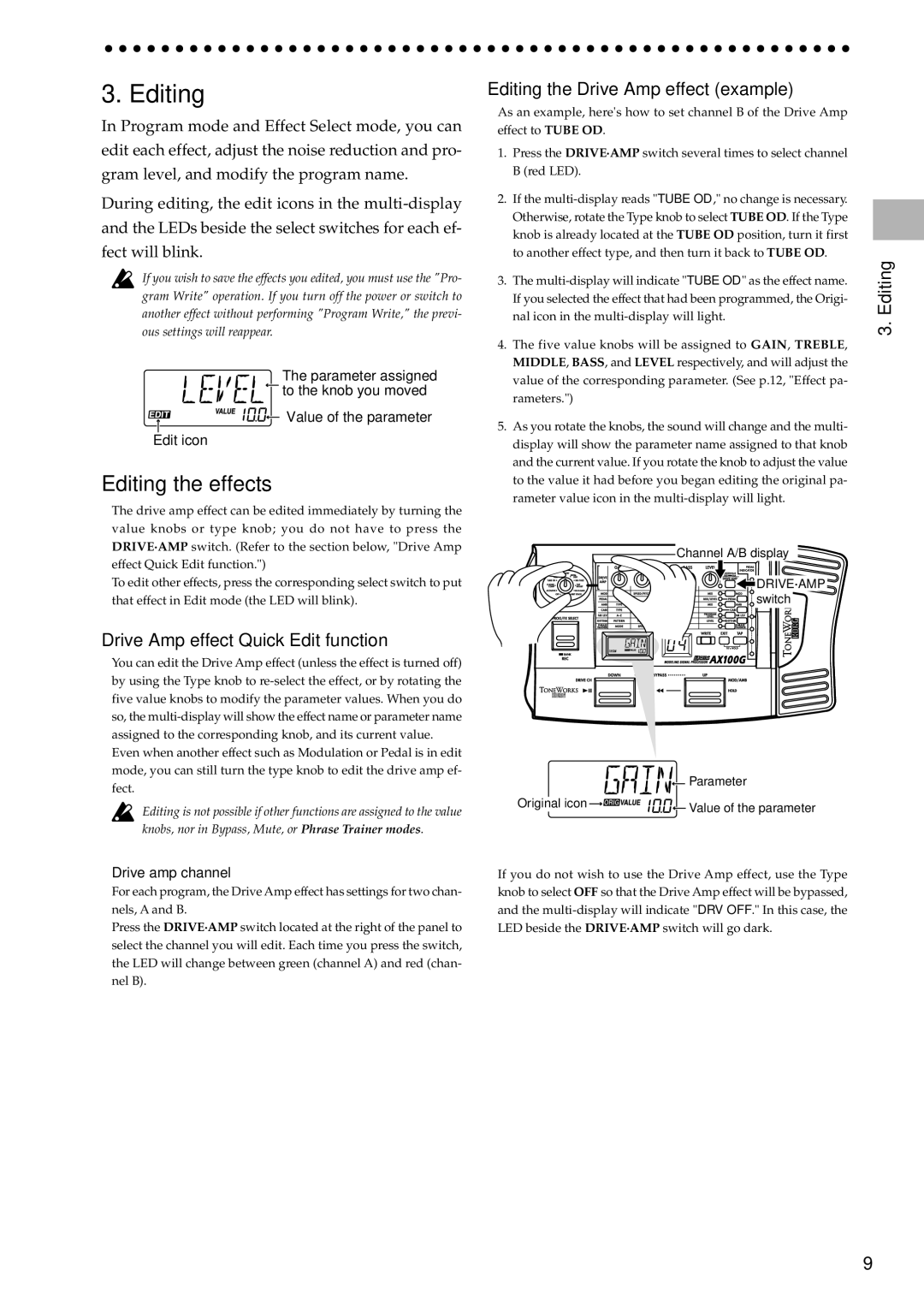
3. Editing
In Program mode and Effect Select mode, you can edit each effect, adjust the noise reduction and pro- gram level, and modify the program name.
During editing, the edit icons in the
If you wish to save the effects you edited, you must use the "Pro- gram Write" operation. If you turn off the power or switch to another effect without performing "Program Write," the previ- ous settings will reappear.
The parameter assigned
![]() to the knob you moved
to the knob you moved
![]()
![]()
![]()
![]()
![]()
![]() Value of the parameter
Value of the parameter
Edit icon
Editing the effects
The drive amp effect can be edited immediately by turning the value knobs or type knob; you do not have to press the DRIVE·AMP switch. (Refer to the section below, "Drive Amp effect Quick Edit function.")
To edit other effects, press the corresponding select switch to put that effect in Edit mode (the LED will blink).
Drive Amp effect Quick Edit function
You can edit the Drive Amp effect (unless the effect is turned off) by using the Type knob to
Even when another effect such as Modulation or Pedal is in edit mode, you can still turn the type knob to edit the drive amp ef- fect.
Editing is not possible if other functions are assigned to the value knobs, nor in Bypass, Mute, or Phrase Trainer modes.
Drive amp channel
For each program, the Drive Amp effect has settings for two chan- nels, A and B.
Press the DRIVE·AMP switch located at the right of the panel to select the channel you will edit. Each time you press the switch, the LED will change between green (channel A) and red (chan- nel B).
Editing the Drive Amp effect (example)
As an example, here's how to set channel B of the Drive Amp effect to TUBE OD.
1.Press the DRIVE·AMP switch several times to select channel B (red LED).
2.If the
3.The
4.The five value knobs will be assigned to GAIN, TREBLE, MIDDLE, BASS, and LEVEL respectively, and will adjust the value of the corresponding parameter. (See p.12, "Effect pa- rameters.")
5.As you rotate the knobs, the sound will change and the multi- display will show the parameter name assigned to that knob and the current value. If you rotate the knob to adjust the value to the value it had before you began editing the original pa- rameter value icon in the
Channel A/B display
DRIVE·AMP |
switch |


 Parameter
Parameter
Original icon 








 Value of the parameter
Value of the parameter
If you do not wish to use the Drive Amp effect, use the Type knob to select OFF so that the Drive Amp effect will be bypassed, and the
3. Editing
9
